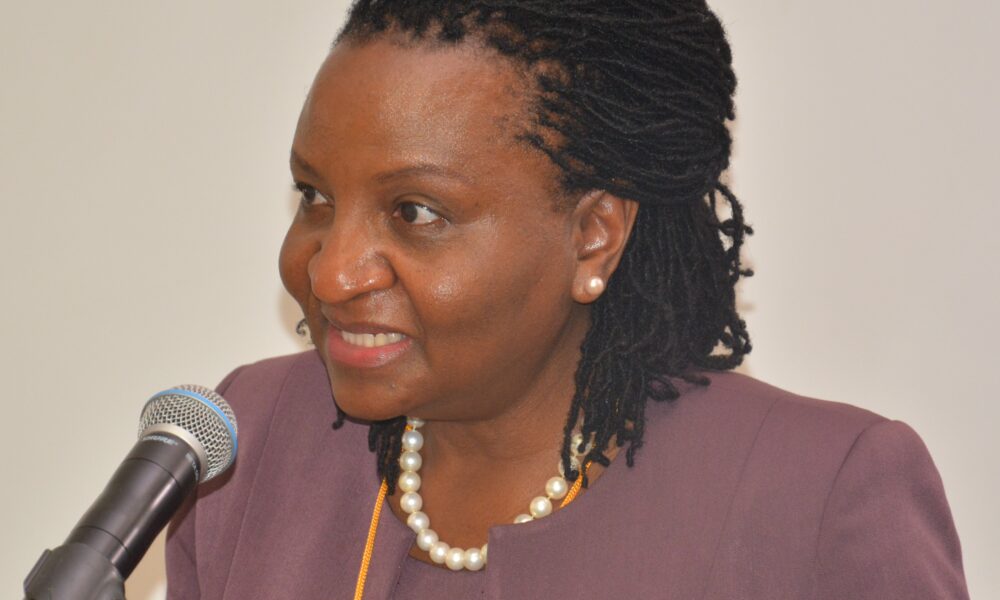Vijana wazidi kutiwa shime kupigania haki zao nchini.
January 21, 2025


By Radio Jangwani
Chief Registrar of the Judiciary Anne Amadi has called on organizations to partner with the Judiciary to expand legal aid to Kenyans.
Speaking at the First National Conference on Legal Aid organized by Egerton University Law School, in Elementaita, Amadi who was the chief guest said that although the right to legal representation is enshrined in domestic and international legal instruments, the professional legal representation remains prohibitively expensive for many Kenyans who interact with courts.
She said threats to lack of legal information or representation is a concern that is shared by millions of ordinary Kenyans whose genuine legal claims remain unpursued because about 35 per cent of Kenyans live below the poverty line.
“Our doors remain open to any organization with solid proposals on partnership with the Judiciary to expand legal aid to the people of Kenya,” She said.
The CRJ said that an uninformed and unrepresented person may altogether abandon what would otherwise be a strong claim, and continue to suffer great injustice in silence adding that self-representation by an average citizen could greatly undermine an otherwise strong case because litigants are often unable to effectively navigate the maze that is the justice system.
“They may not be able to ask the right questions to witnesses, identify and exploit gaps in the case presented by the opposing side. They may be intimidated by the formality of the courts, the technical legal language, among others,” said the CRJ.
She explained that such challenges are more pronounced in an adversarial system like ours where the primary role of the judicial officer is to weigh the merits of the case presented by each side adding that children who lack legal representation are particularly vulnerable given the challenges of the complex justice system.
“I am grateful to the civil society organizations for filling this gap over the years by offering legal advice and representation to litigants in both civil and criminal cases,” said the CRJ.
She commended the Faculty of Law Legal Aid Project (FOLLAP) at Egerton University that was established to facilitate enhanced access to justice by the indigent and marginalized in society, focusing on women, children, persons with disabilities and persons living with HIV-AIDS, within Nakuru County.
She however observed that legal aid does not just mean legal representation by a lawyer but also includes the availability of other mechanisms that make it easier for an indigent litigant to navigate the justice systems, and to receive justice outcomes that respond to their circumstances.
She cited gazettement of the Constitution of Kenya (Protection of Rights and Fundamental Freedoms) Practice and Procedure Rules, 2013 – that seek to facilitate access to justice for all persons, conducting open days and production of information and communication materials, as part of progress the Judiciary has made to simplify legal information and system for the general public.
Amadi added the Pauper Briefs scheme that offer legal representation, mainstreaming alternative forms of dispute resolution (ADR) and launching of Alternative Justice Systems Baseline Policy and Associated Policy Framework that facilitates promotion and protection of the right to access to justice through a simple and informal process, as other achievements.
She observed however that funding remains one of the main challenges undermining the success of Judiciary’s initiatives and called on Parliament to increase the Judiciary’s annual budgetary allocations so that the institution can offer this service to all deserving Kenyans.
She commended lawyers who have sacrificed their time and skills to support the Judiciary’s pro bono schemes adding that legal aid providers will continue to play an integral role towards enhancing access to justice for all Kenyans